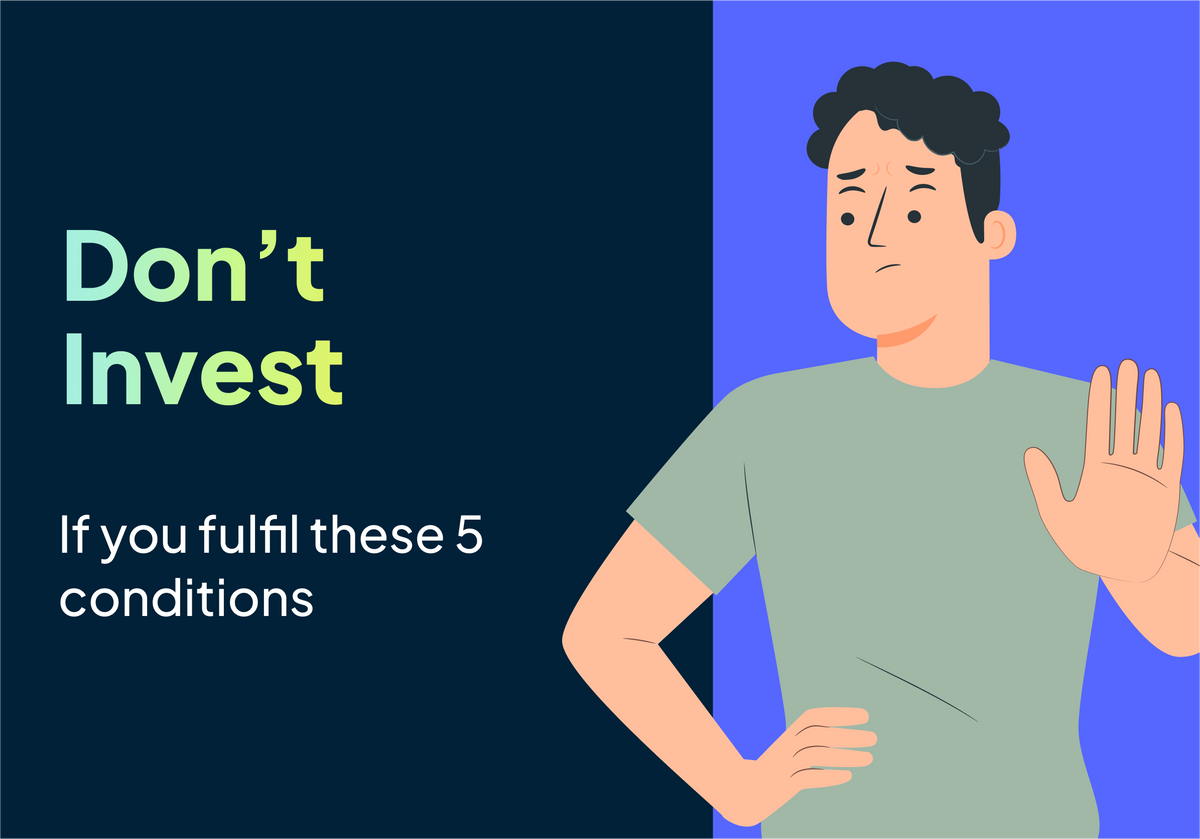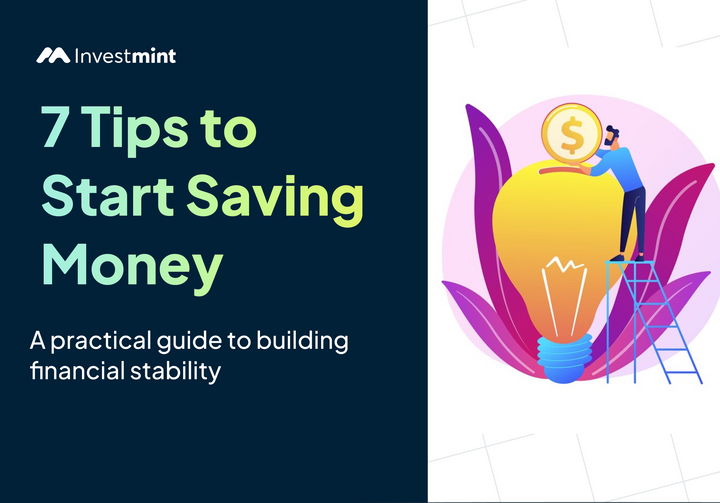5 Times You Should Avoid Investing in the Stock Markets
Investing in stock markets can be a good way to build long-term wealth. However, learn about these 5 situations, when you should not invest in the stock markets.

Stock Market Investor?
Investing in the stock market has always been a popular way to grow your wealth and achieve financial goals. This is because It provides you with opportunities to participate in the growth of companies and earn higher returns than other traditional investment options.
While investing in the stock market, you can also diversify your portfolio and reduce risk. However, investing in the stock market may not always be the best decision for you if you fall under some situations.
In this article, we will explore five situations where you should not invest in the stock market. But first, let’s learn why you should invest in the stock markets.
Why Invest In Stock Markets?
Investing in the stock market offers various benefits to growing wealth over time.
- First, it has a high potential for returns, providing better returns than bonds or savings accounts in the long term.
- Second, investors can diversify their portfolios by investing in different stocks across industries and sectors, minimising their risk exposure to any one company or market segment.
- Third, the stock market provides liquidity, allowing investors to buy and sell their investments quickly as needed, providing flexibility for unexpected expenses or changes in financial circumstances.
However, investors must approach stock market investing with a sound strategy and a long-term perspective to maximise benefits and minimise risks.
5 Times It’s Best To Avoid Stock Market Investments
1. When you will need that capital in the next 3-5 years
Your investment horizon is one of the most important factors to consider before investing in the stock market. If you need the money you're considering investing in the next few years, the stock market may not be your best option. This is because the stock market can be volatile in the short term, and there's no guarantee that you'll earn a positive return over a short period.
For example, let's say you plan to buy a house in two years and save up Rs 5,00,000 for a down payment. If you invest that money in the stock market and the market experiences a downturn, you may end up losing a significant portion of your savings. In this case, it's better to keep your money in a more stable investment, such as a high-yield savings account or a short-term bond fund.
2. When interest rates are at an all-time high
Interest rates can have a significant impact on the stock market. When interest rates are high, investors may be more likely to sell their stocks and invest in bonds or other fixed-income securities, which offer a guaranteed return. This can cause stock prices to fall, leading to losses for investors.
For example, in the early 1980s, interest rates in the US were at an all-time high of over 15%. The stock market was not performing well during this time, as investors were more focused on high-interest savings accounts and bonds. During periods of high-interest rates, you should lock in the rates with a fixed deposit or other deposits if you have a low-risk appetite.
3. If you already have pending loans/debt
It may not be the best time to invest in the stock market if you have high-interest debt, such as credit card debt or personal loans. This is because the interest you pay on your debt is likely to be higher than the returns you could earn from your investments, making it difficult to generate a positive net return.
For example, if you have Rs 50,000 in credit card debt with an interest rate of 18% and if you invest Rs 50,000 in the stock market, you would need to earn a return of more than 18% just to break even. In this case, focusing on paying down your debt is better before investing in the stock market. Once you've paid off your high-interest debt, you can redirect those funds towards your investments that have the potential to provide long-term growth.
4. If you do not have an emergency fund
An emergency fund is crucial for financial stability. It is a pool of cash that you can use to cover unexpected expenses, such as a medical emergency, a job loss, or a car repair. If you don't have an emergency fund in place, investing in the stock market may not be the best choice for you. This is because you may need to dip into your investments in case of an emergency, which could result in losses.
For example, if you invest all your savings in the stock market, and then your car breaks down, you may need to sell your investments (probably at a loss) to pay for the repairs. Hence, before investing in the stock market, build up an emergency fund that can cover at least three to six months of living expenses.
5. If you panic with small price fluctuations
The stock market can be volatile, with prices fluctuating on a daily basis. If you are the type of investor who panics with small price fluctuations, it may not be the best thing to invest in the stock market. This is because if you panic and sell your investments, you will lock in your losses that may have been avoided by staying invested for the long term. In fact, staying invested in a well-diversified portfolio of stocks can help you weather short-term volatility and achieve long-term financial goals.
Summary
- Stock Market Investment Benefits: Investing in stocks helps grow wealth over time, offering high returns and portfolio diversification across industries. It also provides liquidity for quick buy and sell actions, aiding flexibility.
Situations to Avoid Stock Market:
- Short-Term Capital Needs: If you need funds in 3-5 years, stock market volatility could lead to losses.
- High-Interest Rates: During high-interest rates, stock prices might fall; consider fixed deposits for lower risk.
- Pending Debts: If you have high-interest debts, focus on paying them first; debts may outpace investment returns.
- No Emergency Fund: Lack of an emergency fund can force selling stocks during unexpected expenses, causing losses.
- Panic with Fluctuations: If small price changes make you panic and sell, stock market investing might not suit your temperament.
Interested in getting more of such articles in your email every day? Click on the Subscribe button now!



